
With the media often reporting alarming figures on the water use of farm animals, without putting the methods and context of the calculations into perspective, many consumers have the perception that meat consumption is harmful to the environment. However, it is important to consider the wider context of animal production under extensive conditions.
Figures quoted about the water footprint of farm animals are unrealistic. For example, it is claimed that the volume of water used meat. The problem with these figures is that they are based on incorrect assumptions. The example below demonstrates this.
If 10mm of rain falls on 1ha, this will total 100kł (kilolitres). If 10mm of rain falls on a 3000ha farm, the total will be 300 000kt. If the average rainfall is 450mm/year, the total amount of water that will fall on the farm is 135 million kilolitres.
If its carrying capacity is 6ha/LSU, the farm can support 500 LSUs. This equates to 270 000kl of water per livestock unit per year. (An LSU is the equivalent of a 450kg ox that gains 500g/day.)
These are the type of calculations that are made to support the claim that 15 500l of water are used to produce 1kg of meat. The reality is that cattle use only a fraction of this water, and this brings us to the concepts of ‘green’ and ‘blue’ water. Green water is that which is absorbed by the soil and used by plants to grow; it cannot be used for anything else.
Bu hikaye Farmer's Weekly dergisinin Farmer's Weekly 7 & 14 April 2023 sayısından alınmıştır.
Start your 7-day Magzter GOLD free trial to access thousands of curated premium stories, and 8,500+ magazines and newspapers.
Already a subscriber ? Giriş Yap
Bu hikaye Farmer's Weekly dergisinin Farmer's Weekly 7 & 14 April 2023 sayısından alınmıştır.
Start your 7-day Magzter GOLD free trial to access thousands of curated premium stories, and 8,500+ magazines and newspapers.
Already a subscriber? Giriş Yap
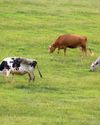
Africa goes from net carbon sink to source
New research shows Africa's impact on greenhouse gases and the need to focus on climate-smart agriculture
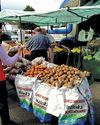
Ireland potato farmers unable to complete planting
Irish potato farmers have reported a delay in harvest and said that the UK might have to prepare for shortages of the produce. The shortfall is due to extreme wet weather during their planting season.
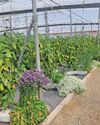
Zero-residue fresh produce a reality
Retail giants are calling for caution when using biologicals and chemical pesticides,

Big boost for mohair producers in Eastern Cape
A collaboration between the Eastern Cape Development Corporation (ECDC) and the Mohair Empowerment Trust (MET) has resulted in a R1,4 million injection into four emerging Angora goat farming operations in the Eastern Cape.
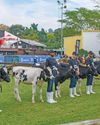
KZN Youth Show at Roval Agricultural Exhibition
The KZN Youth Show will run from Friday, 24 May to Sunday, 26 May at the Royal Showgrounds in Pietermaritzburg.
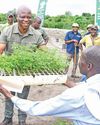
Hemp permits and irrigation system handed over
In an effort to fast-track the entry of rural farmers into the cannabis and hemp industries, KwaZuluNatal Minister for Agriculture and Rural Development, Super Zuma, visited the Shukasibheme Project in Mbazwana, a co-operative in Mseleni, uMhlabuyalingana in the Umkhanyakude District, to hand over cannabis and hemp permits as well as a borehole and irrigation system.

Meet some of the heroes behind avitourism destinations
Exploring what the Garden Route offers birdwatchers, Brian Berkman discovers some special people who run hospitable places to meet and see a variety of species.
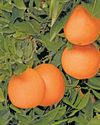
What the Citrus Academy offers aspiring producers
Cobus du Plessis takes a look at the Citrus Growers' Association of Southern Africa's Citrus Academy and how it is helping to develop aspiring farmers in the sector.
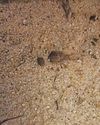
Natural-born killers of the insect world
The Myrmeleontidae family of lacewings from the Neuroptera order of insects consists of about 2 000 species of which 125 are found in South Africa.
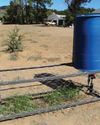
Seeder kick-starts vegetation in challenging environments
Dr George Craven of Noorspoort, Steytlerville, in the south-eastern Karoo, is successfully using a home-built 'bedstead seeder' to re-establish veld plants in an arid area, writes Roelof Bezuidenhout.